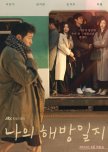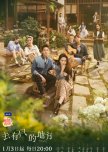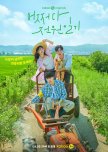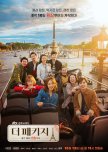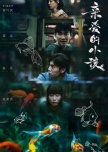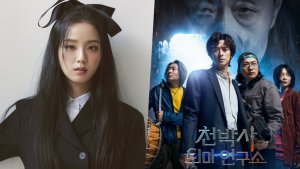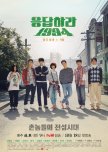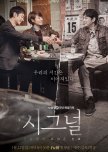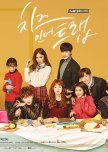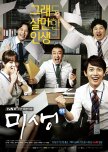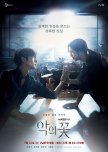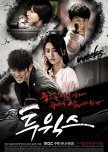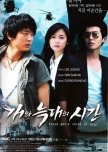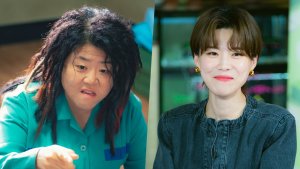 Lee Jung Eun and Jang Do Yeon to Cameo on the Finale of “Behind Your Touch”!
Lee Jung Eun and Jang Do Yeon to Cameo on the Finale of “Behind Your Touch”! "Our Blues" prend un drame de style omnibus, qui raconte l'histoire de divers personnages qui sont quelque peu interconnectés, d'une manière ou d'une autre. Lee Dong Suk, un gars né sur la belle île de Jeju, vend des camions pour gagner sa vie. Il rencontre Min Sun Ah, une fille au passé mystérieux, qui est venue à Jeju pour échapper à cette vie. Park Jung Joon, un capitaine de navire, tombe amoureux de Lee Young Ok, un plongeur à la personnalité brillante et pétillante. Jung Eun Hee, propriétaire d'une poissonnerie, retrouve son ancien amant Choi Han Soo. Ils se croisent sur l'île de Jeju à son retour, après avoir réalisé que la vie citadine n'est pas pour lui. (Source: English = epicstream.com avec MyDramaList || Traduction = Laskie de MyDramaList) Modifier la traduction
- Français
- 中文(台灣)
- Arabic
- Русский
- Titre original: 우리들의 블루스
- Aussi connu sous le nom de: Ulideului Beulluseu
- Scénariste: Noh Hee Kyung
- Réalisateur: Kim Kyu Tae, Lee Jung Mook
- Genres: Romance, Vie quotidienne, Drame, Mélodrame
Distribution et équipes
- Lee Byung Hun Rôle principal
- Shin Min Ah Rôle principal
- Cha Seung Won Rôle principal
- Lee Jung Eun Rôle principal
- Uhm Jung Hwa Rôle principal
- Han Ji Min Rôle principal
Critiques
Plus que récit choral, suite de duos ou trios...
Je l’ai beaucoup aimé, avec pourtant un bémol sur la fin !Nous sommes sur l’île de Jeju, mais pas dans les sites des décors de sageuks ou de romance de luxe ! Non, nous avons des pêcheurs(et pêcheuses), des marchands de poissons, des commerçants, des gens dans l’ensemble comme vous et moi, mais en Corée, donc ça peut brailler pas mal ! C’est assez méridional comme ambiance. Le groupe le plus exotiques pour nous est sans doute celui des haenyeo, ces femmes qui gagnent leur vie en pêchant des coquillages en plongeant en apnée, tradition séculaire de Jeju, que l’on retrouve d’ailleurs aussi au Japon !
Le début démarre sur les chapeaux de roues avec le retour à Jeju d’un enfant du pays, directeur de l'agence bancaire du village, interprété par Cha Seung Won, qui y retrouve à la fois son premier amour (Lee Jung Eun)et ses amis d’enfance, et cela nous donne une très jolie histoire de tendresse, d’amitié mais sans aucune mièvrerie, car les retrouvailles ne sont pas toujours aussi simples… Puis on passe à une autre histoire, mais certains personnages clés restent pour nous guider : la marchande poisson, le marchand de soupe de boudin, celui de glace, et les haenyeo, dont le groupe et les plongées sous-marines donnent lieu à des séquences géniales !
Cependant ce qui fait la qualité du drama en fait aussi son défaut, les histoires personnelles prennent de plus en plus le pas sur le groupe,quand on avance dans le drama, et j’aurais aimé que le chœur accompagne un peu plus souvent et un peu mieux les solistes, comme dans la très belle séquence qui fait intervenir une jeune actrice trisomique.
Mais je me suis régalée avec chacune des histoires, celle des deux amies qui règlent enfin un vieux compte, celle de la sœur handicapée d’une haenyeo qui débarque soudain, celle des deux adolescents amoureux, dont les pères se détestent, bref, chacune d’entre elles m’a plu car elle ouvrait une fenêtre sur la vie coréenne, et tout simplement sur le cœur humain.
Mon bémol, c’est la dernière de ces histoires, la réconciliation difficile entre Lee Byung Hun et sa mère Kim Hye Ja, que j’ai trouvée trop longue, qui m’a laissée avec des questions sans réponse, et surtout qui a rendu le retour final au groupe trop court, trop superficiel. On s’est trop éloigné des autres personnes qui méritaient tout autant notre attention. D’un autre côté, si je l’avais vu d’une seule traite je n’aurais peut-être pas ressenti ça, mais je pense que 20 épisodes c’est trop, 18 auraient été très bien !
La réalisation classique et solide soutient bien l’histoire, et les acteurs sont tous parfaits !! Les scènes de plongées sont superbes, et il y a un juste mélange d'humour, et d'émotion, au moins pendant les 3/4 du drama.
Je ne peux m’empêcher de souligner le vrai retour de Kim Woo Bin, son sourire chaleureux intact et rayonnant !
La bande son m’a plu, elle est très agréable, souligne bien les atmosphères, n’est pas envahissante.
Au final c’est un drama tout à fait recommandable, quand on aime les scénarios fondés sur le sociétal, le cœur humain et ses trésors secrets.

Outstanding! A KDrama that somehow satisfyingly feeds the human heart.
The KDrama "Our Blues" unfolds a distinctive magic that gently stretches its silken net around the hearts of the viewers and thus spreads warmth. Big KDrama!Re. musical genre: the blues is a kind of lament, sad in nature and born of pain. In "Our Blues" it's not the lamentations of slaves on the plantations, but those of several very average people living where South Koreans prefer to go for vacation: Jeju Island. The protagonists´ lifes are in no way spectacular. They are rather normal for their age and the place. They work hard for their income, live simply and often on what the land (and in this case the sea) offers them. From the buzz of these individual and yet so normal lamentations, a sense of unity grows, that even transcends the screen - because many can sympathize with it and identify with their painful and often humiliating experiences in their own way. That makes it "OUR" blues in several ways. It reaches out from the world of the KDrama into the world of the audience and brings us as people from all over the world a bit closer to each other.
"Our Blues" fondly tells a dozen stories about disappointments and unhealed mental wounds that many people know in one way or another and may have experienced themselves. Most of the protagonists (all wonderful first-class cast!) have known each other more or less since childhood. They form a community of colleagues, friends, family and family of choice. Although Jeju-do is South Korea's largest island, it is relatively small at 73 km x 31 km. At its center, South Korea's highest mountain - the dormant Hallasan Volcano - divides the island into the northern area around the city of Jeju and the southern area around the city of Seogwipo. Seogwipo has an urban center with the harbor and then there is urban sprawl with village structures along the coast. This city characterizes the living environment of the characters. As audience, we accompany some of them in a kind of latent mental process of molting.
Some say there is no such thing as a storyline in "Our Blues". In fact, it is more of a composition, or rather a kaleidoscope of independent lamentations. At the core of each lies an ancient pain. What's magnificent about "Our Blues" is that (and how) these songs are finally being sung and thus make space for light and love. For far too long, the protagonists have kept their pain deeply hidden within. They tried to live with it neatly packed away, instead of 'giving' it some space. Yet, sooner or later, the old pain just 'takes' its space... for 20 episodes...
I would´t call it healing, rather transformation, because the painful experience of the past is and remains what it was. However, the potential of what is possible in the future is changing. When the pain in the heart is finally allowed to find space and show itself, it can be witnessed and receive the recognition it deserves. The spasm dissolves and energy is released. Thus new experiences are now possible in the future.
Wanting to spare oneself or others, or wanting to avoid conflict and confrontation, has ultimately never really worked or done any good. Actually, emotional pain and psychological suffering have something to offer: they are the key to opening a portal to a new dimension of truthfulness. The recipe is quite simple: friction (in a deliberately tangible sense of rubbing) facilitates closeness. The problem that prevents this potential for closeness is very human: fear. Because the prerequisite is that I have to honestly show myself as I am (e.g. with my feelings). In doing so, I make myself vulnerable. But only then someone dear to me can reach out and touch me for real. And only in this way true encounter between me and the world becomes possible. Self-assured. Aware of myself. Straightforward. Straight. Upright.
In this KDrama lamentations are ´sung´ and ´heard´. Deep down they are sad, true enough. Yet, it makes you happy, that they are sung at last. And it is just beautiful the way those stories are told: The variety of stories about friendship dynamics, unrequited love and sensitive family relationships are affectionately interwoven in many layers and gain in radiance. We repeatedly encounter individual protagonists in several contexts. One person after the other ... we can´t help to grow fond of them. Ultimately, besides the very human blues that life inevitably offers as a portal to become who we are, the constants in all time, here, there and everywhere, are the sea around us and the sky above. Jeju-do as location for this KDama just hits the spot!
A KDrama that somehow satisfyingly feeds the human heart.
(By the way: "Our Blues" has become one of the highest-rated series on South Korean cable television. Viewer ratings have doubled from episode 1 to 20. (As I said, you grow fond of it over time...)
----------------- SIDE NOTE: --- Haenyeo = sea women or daughters of the sea ---
Jeju-do is famous not only as a tourist hotspot with boardwalks and hotels for honeymooners (Jeju International Airport is the third largest in the country), but also for its volcanic landscape, which is now a World Heritage Site. Yet, furthermore, characteristic of the island's tradition are the Haenyeos, who have been diving for centuries without oxygen tanks for abalone (or sea snails) and other sea food. Especially abalone is plentiful on the seabed around the island. However, these are not so easy to harvest by conventional fishing industry.
To this day, the archaic way of free diving is the only proven one: hold your breath, dive down with a hook, a weight belt and a small net, and then skilfully scrape the seafood off the rocks at the bottom. Today, wetsuits, diving goggles and fins help. A buoy marks the 'area'. Not everyone can do that. Apparently women are particularly good at it. Often families practice this craft for many generations already. The technique of holding your breath for around 3 minutes at high underwater pressure, even at a water temperature of 8 °C, is usually passed on to the daughter. (Actually, in these circles the birth of a daughter is finally empathically praised and extensively celebrated.)
The income of the sought-after Haenyeo has become quite respectable. They are economically independent by now. These days, however, there is shadow to it, too. Being able to finance university studies for their offspring, the young generation nowadays prefers to move to the mainland for higher education and more comfortable jobs. Accordingly, the Haenyeos could soon become extinct. Nevertheless, once you are a Haenyeo, you stay with the diving until old age.
----------------------------------------------------------------------------------------------------

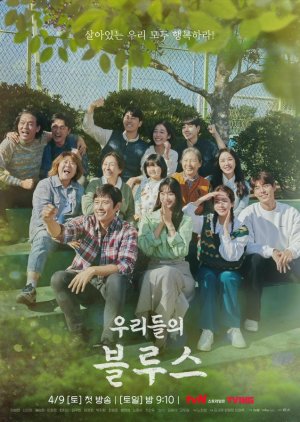








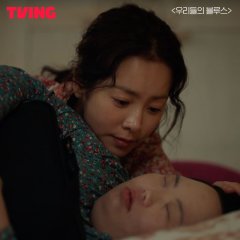
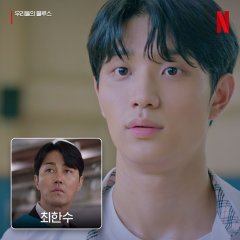

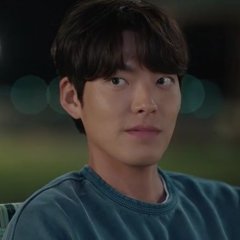
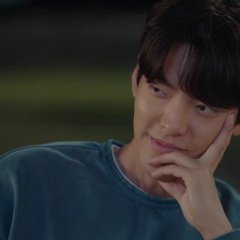

 1
1 1
1 1
1
